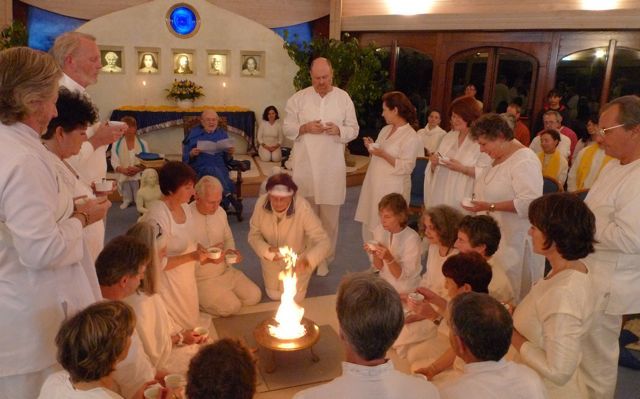Finding Your Dharma
This week we’ve been having a wonderful gathering for Inner Renewal Retreat, whose theme has been “Embrace Your Dharma—Your Path to Liberation.” The Temple of Light here at Ananda’s Expanding Light Retreat has been packed with several hundred residents and guests; another three thousand five hundred people are enrolled online. (If you’re interested in watching the classes and other events, you can still receive a free link.)
One of the most frequently asked questions on this topic is “How do I know what my dharma is?” Let’s talk about two different aspects of this: the longer rhythms or patterns that govern our lifetime as a whole, and the situations that arise from moment to moment as our life unfolds.
While our ultimate destiny is Self-realization, there is also the dharma of any particular life as determined by our past karma. Swami Kriyananda wrote: “The duty [dharma] of every man is that which is particularly his own, ordained for him by karmic bonds he himself has forged, and must untie to release himself from attachment to ego.” Each one of us has a unique journey to soul freedom through the maze of our past karma.
Once many years ago after a Kriya Initiation, Swamiji shared with a small group an amazing experience he had had during the ceremony. “As each person came up for the blessing,” he told us, “I could feel his unique path to liberation.”

For devotees, the dharmic life pattern is something we should patiently allow to unfold, without forcing the circumstances and without undo anxiety. I had a good friend who was torn over the issue of whether she should marry or become a monastic. After a year of stressing over this, she finally asked Swamiji what he felt her dharma was. His response was: “Your karma could go either way. Let’s see what happens.”
So she waited. After five years, she had become unattached on a deep level. By that point, she was ready to accept her dharma (whatever it might be), and get on with her life. Again, she asked Swamiji what her dharma was, and this time he answered, “You should marry.” Circumstances were such that she was happily married within a few months.
One of Master’s disciples said, “Your own will surely come to you. In fact, you cannot avoid it.” Our dharma for a lifetime—especially the outward role we are to play—is most often determined by past karmic forces that we cannot control, and often are not even aware of consciously. But if we give our life to God in discipleship, service, and devotion, and wait patiently for His guidance, the right life path will open before us. The challenge is in following our dharma once it becomes clear.
For there is the problem of discerning dharmic responses to the myriad of questions that arise in daily life: What, in each case, is the right action to take? The best place to start is to tackle the problems closest at hand using these criteria: 1) address the situation with the best energy you have; 2) do it without attachment to the results; and 3) ask for the inner guidance of the guru.
Master gave us this marvelous prayer: “I will reason, I will will, I will act, but guide Thou my reason, will, and activity to the right path in everything.”
Start with the battles you are confident of winning. For example, if you are a lazy person, it would be unwise to decide, “I’m going to run a marathon and will get up every day at 6:00 a.m. to run for an hour.” It would be much better to start with a smaller goal that you can accomplish: “I’m going to walk for thirty minutes three days a week.” Conquer the negative habit of laziness by taking doable steps, and keep building on your strengths, until one day you may run that marathon. This is the way of victory over past karma by practicing right action.
In the Bhagavad Gita, Krishna says: “To do one’s own duty even unsuccessfully is better than to do someone else’s successfully.” (3:35) It is important, therefore, if we are to discover and follow our unique path of dharma, that we not be attached to the results of our actions.
Bad karma is merely energy that has been misdirected. Through meditation, right action, and divine grace, we can follow our dharma, break the bondage of karma, and achieve freedom in God.
With enthusiasm and joy,
Nayaswami Devi